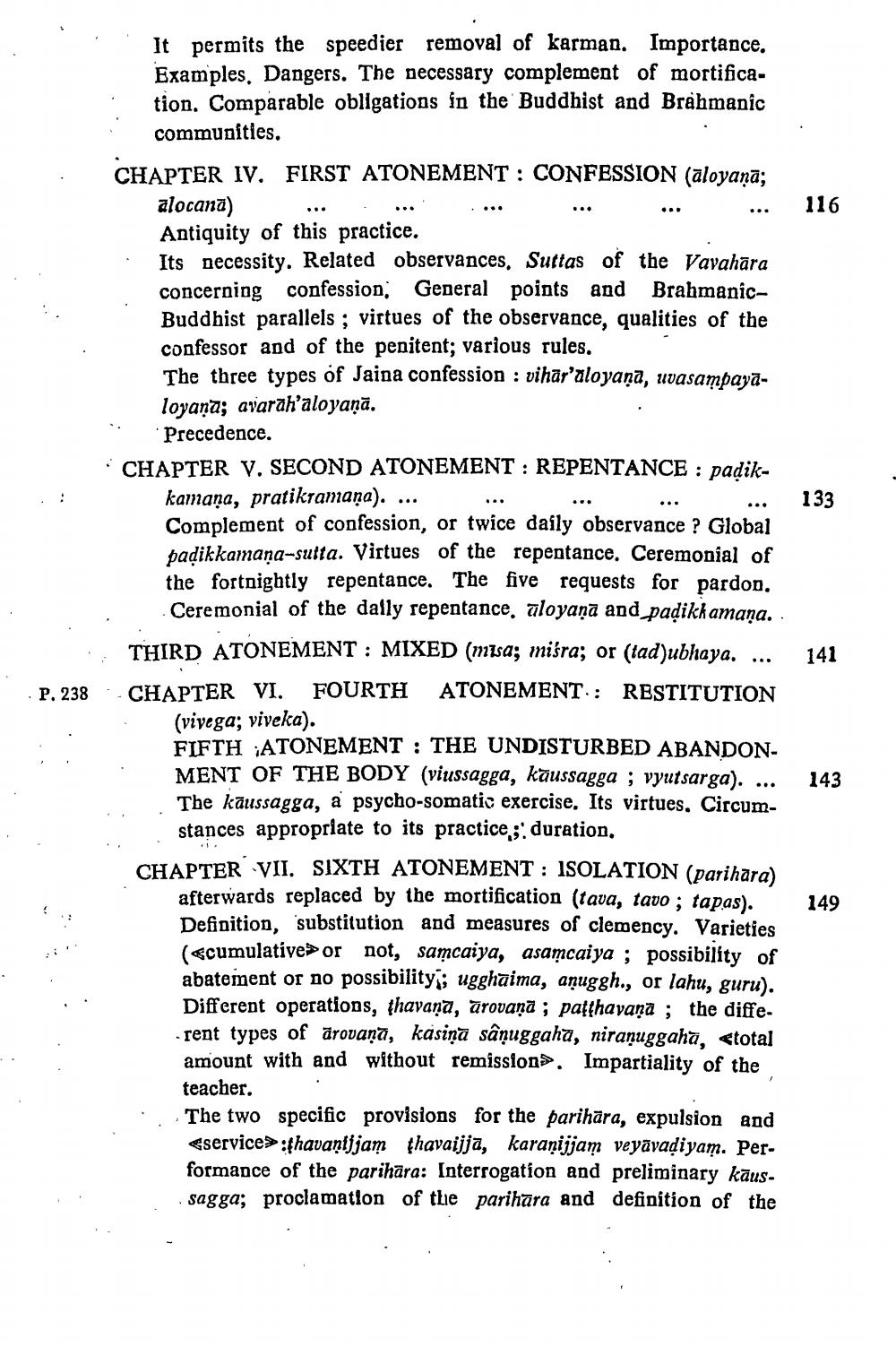________________
. P. 238
It permits the speedier removal of karman. Importance. Examples, Dangers. The necessary complement of mortification. Comparable obligations in the Buddhist and Brahmanic communities.
CHAPTER IV. FIRST ATONEMENT: CONFESSION (aloyaṇā; alocana)
...
Antiquity of this practice.
Its necessity. Related observances. Suttas of the Vavahāra concerning confession, General points and BrahmanicBuddhist parallels; virtues of the observance, qualities of the confessor and of the penitent; various rules.
The three types of Jaina confession : vihar'aloyaṇa, uvasampayāloyaṇa; avarah'aloyaṇā.
Precedence.
CHAPTER V. SECOND ATONEMENT: REPENTANCE : padikkamana, pratikramaṇa). Complement of confession, or twice daily observance ? Global paḍikkamaṇa-sutta. Virtues of the repentance. Ceremonial of the fortnightly repentance. The five requests for pardon. Ceremonial of the daily repentance, aloyaṇa and paḍikkamana. THIRD ATONEMENT: MIXED (misa; miśra; or (tad)ubhaya. CHAPTER VI. FOURTH ATONEMENT: RESTITUTION (vivega; viveka).
FIFTH ATONEMENT: THE UNDISTURBED ABANDONMENT OF THE BODY (viussagga, kaussagga; vyutsarga). 143 The kaussagga, a psycho-somatic exercise. Its virtues. Circumstances appropriate to its practice; duration.
...
...
...
...
CHAPTER VII. SIXTH ATONEMENT: ISOLATION (parihara) afterwards replaced by the mortification (tava, tavo; tapas). Definition, substitution and measures of clemency. Varieties (<cumulative or not, samcaiya, asamcaiya; possibility of abatement or no possibility; ugghaima, anuggh., or lahu, guru). Different operations, thavana, arovana; patthavana; the different types of ārovaṇā, kasiņā sâṇuggaha, niraṇuggaha, <total amount with and without remission>. Impartiality of the teacher.
116
The two specific provisions for the parihara, expulsion and <service> :thavantjjam thavaijja, karanijjam veyāvaḍiyam. Performance of the parihara: Interrogation and preliminary kaussagga; proclamation of the parihara and definition of the
133
141
149




